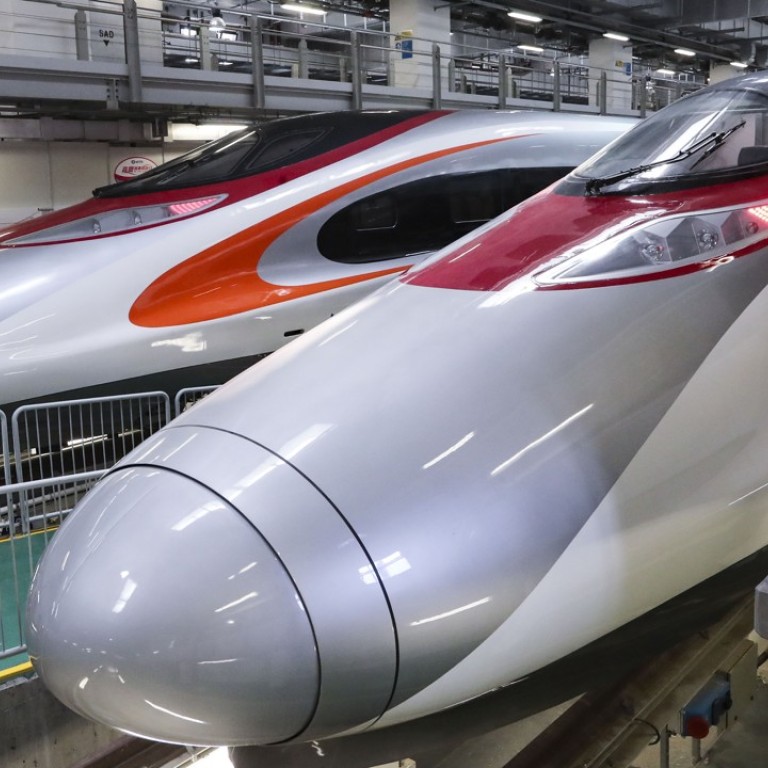
Letters to the Editor, January 15, 2018
Immigration checks easily done on train
About one hour into the four-hour journey to St Petersburg, a Russian immigration officer entered our car, asked us to look at the device he was holding and took a photo as well as scanning our passports.
The train slowed (but did not stop) with trackside notices displaying that this was a Russian customs area and no one was to leave the train unless escorted. (Presumably this where you get put off the train if you have no Russian visa.) On arrival at St Petersburg we simply left the train and caught local transport. I was impressed: quick, no fuss and no hassles at each end.
I can only guess that the Russian immigration officer arrived with the incoming train from St Petersburg and simply checked travellers on the return journey to Russia.
I am sure such a system could be implemented here if the mainland authorities did not constantly insist on their way of doing fast immigration checks.
Ian W. Johnston, Discovery Bay
Mindset will change with polluter pays
I believe that the government’s proposed waste-charge scheme is feasible.
It is based on the polluter-pays principle and it is only right that people should pay for the volumes of waste they generate. After all, we should all be responsible for trying to protect the Earth.
Once residents start having to pay they will be more likely to try to cut back on the refuse they discard.
They will make a greater effort to reuse and put materials in recycling bins.
It is clear since the plastic bag levy was introduced in 2009, in retail outlets, that charging does work as fewer plastic bags are being discarded.
A municipal waste charging scheme is long overdue.
Yolanda Chu, Kwai Chung
MTR should invest in HK, not overseas
It is becoming a regular occurrence for the MTR to break down and there is no backup facility to prevent millions of passengers being stranded.
On Thursday the MTR failed again on the East Rail Line [for two hours after a signal system failure].
Instead of raising fares and investing in overseas networks, it is time the MTR Corporation invested in Hong Kong and upgraded its aged rolling stock signalling and overhead line systems. I am sure these breakdowns cause some local businesses to lose money.
Donald Gray, Yuen Long
Vegan diet can help with fight against obesity
Veganism is not just good for our health, but also good to the world. A vegetarian diet is low in calories and Hong Kong has a problem with obesity. Many citizens eat fast food, which contains a lot of salt and sugar.
If more people opted for vegetarian diets there would be less demand for meat and fewer cattle which would reduce carbon emissions globally.
It is difficult to change your diet radically and stop eating meat, but it is a healthy choice.
Jenny Cheung Hoi-yan, Kwai Chung
Hackers target payments by smartphone
With rapid advances in technology we are getting closer to becoming a cashless society.
Many citizens in major Chinese cities use smartphones to make payments and no longer use notes. This can help cut queues as you are less likely to be stuck behind someone who is laboriously counting out the exact change. While the online method is convenient I am concerned about security risks.
Criminals might be able to hack into some payment systems and steal customers’ information. I am also worried that some people might not think carefully and overspend.
I hope we are still some way off from the end of cash payments.
Melody Ho, Tseung Kwan O
Concessions important on both sides
Tensions on the Korean peninsula have been high in recent months because of North Korea’s repeated missile tests and its ongoing nuclear weapons programme. However, I can understand North Korea’s concerns about the South continuing to have military exercises with the US and also playing K-pop songs at the border between the two countries. These actions are seen by Pyongyang as provocative.
There have been fears that one wrong move could lead to a conflict. I think both sides need to offer concessions.
Holding these meetings can be meaningful. The more they talk the better the chance that some day there will be reunification. These talks mean we are one small step closer to that happening.
If there are talks there is a better chance of families divided by the Korean war being able to meet.
Karen Ng Hong-ming, Tsing Yi

